MongoDB Atlas / Cloud Manager
Follow the below steps to configure routing of your MongoDB Atlas / Cloud manager alerts to Squadcast.
Note: MongoDB Atlas is the cloud hosted version of MongoDB offered by the company, whereas MongoDB Cloud Manager is the open source self-hosted version of MongoDB.
Using MongoDB as an Alert Source
(1) From the navigation bar on the left, select Services. Pick the applicable Team from the Team-picker on the top. Next, click on Alert Sources for the applicable Service
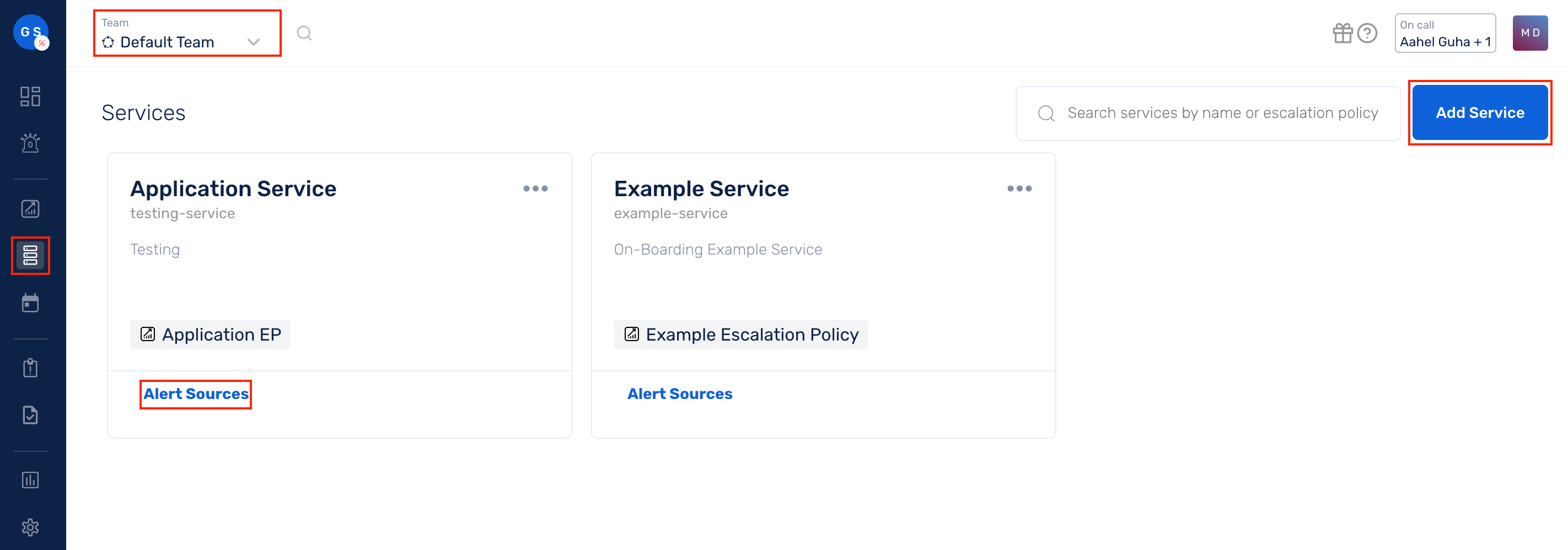
(2) Search for either MongoAtlas or MongoCloudManager, depending on the MongoDB hosting at your end, from the Alert Source drop-down and copy the Webhook URL
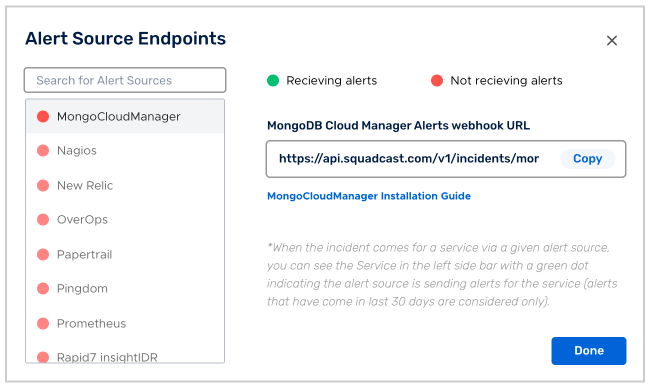
For an Alert Source to turn active (indicated by a green dot - Receiving alerts against the name of the Alert Source in the drop-down), you can either generate a test alert or wait for a real-time alert to be generated by the Alert Source.
An Alert Source is active if there is a recorded incident via that Alert Source for the Service in the last 30 days.
2.Go to your MongoDB Atlas / Cloud manager Dashboard and click on Settings and click the edit icon on Webhook settings and enter the webhook url obtained from the previous step and click Save button. (You need Account owner permissions to do this in MongoDB)
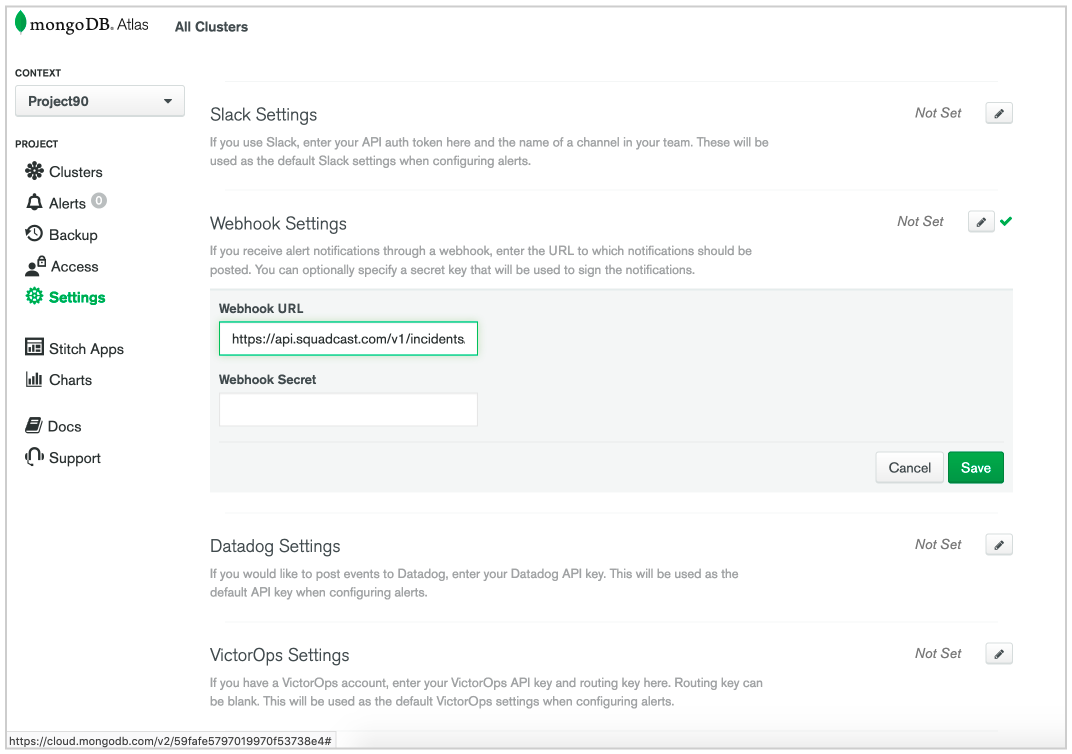
3.Now we can add the created webhook as an alert mechanism for both new / existing alerts. Click Add -> New Alert to create a new alert.
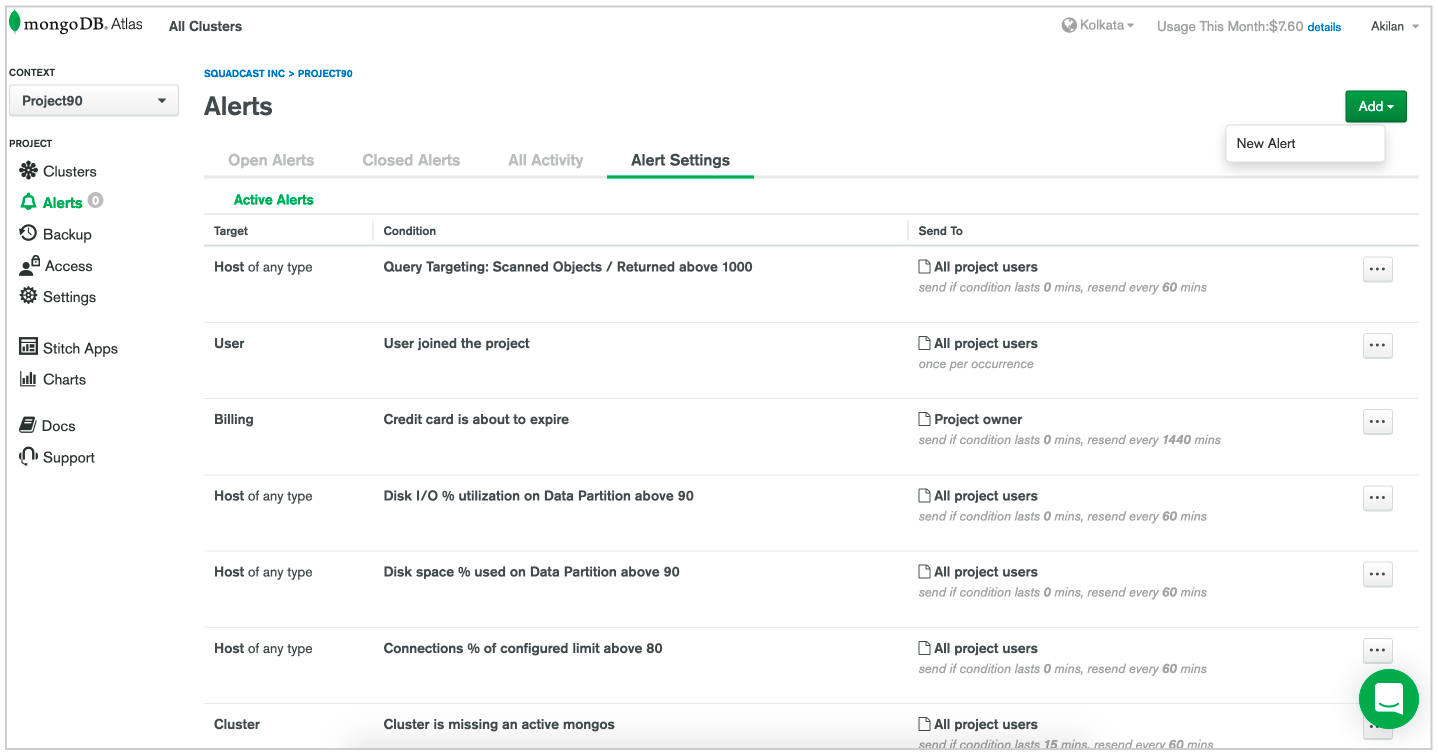
4.Define the alert parameters and under Send to, select Webhook and click Save button.
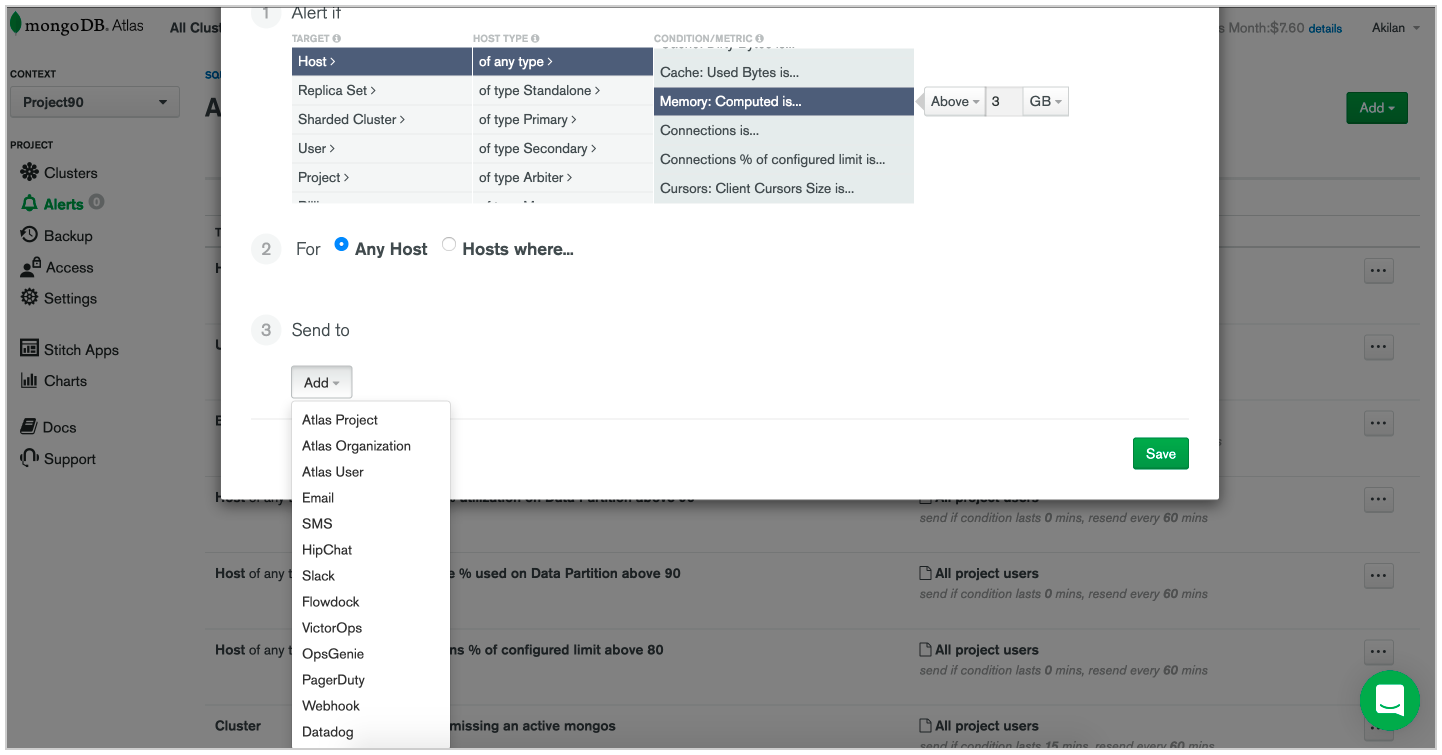
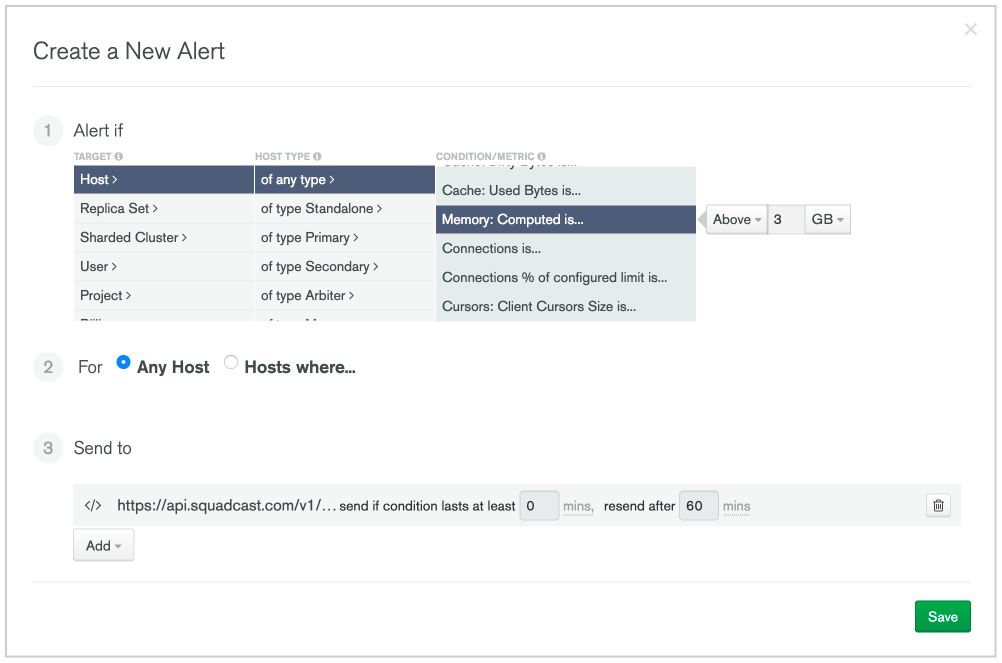
The Alert is configured and integrated with Squadcast and whenever it is triggered in MongoDB, an incident will be triggered in Squadcast as well.
Squadcast automatically syncs the alert status from MongoDB as defined below.
If a user Acknowledges the alert in MongoDB, Squadcast will also Acknowledges (Auto-Acknowledge) the incident in Squadcast, provided the same user (with same email ID) is also present in Squadcast.
Squadcast will Auto-Resolve the incident, if the alerts get resolved in MongoDB and doesn’t require any manual intervention from the user.